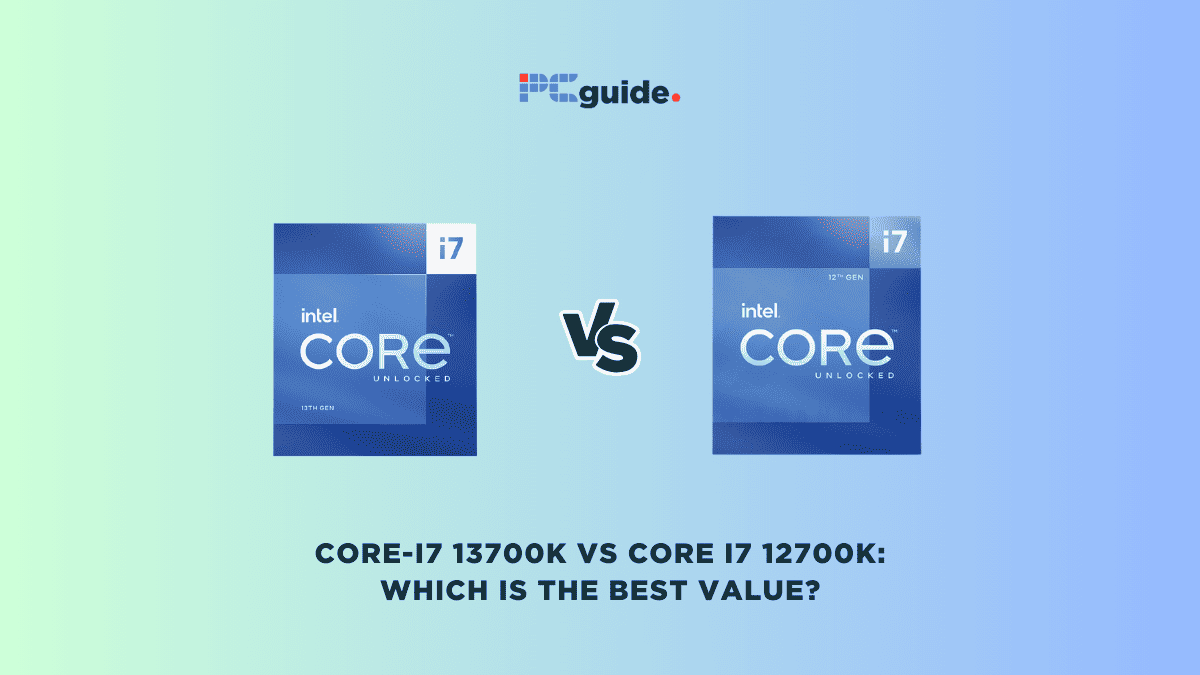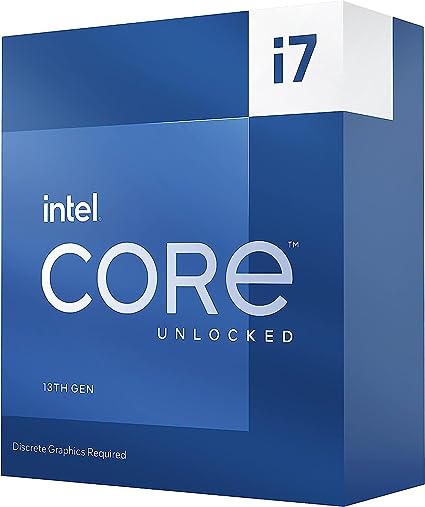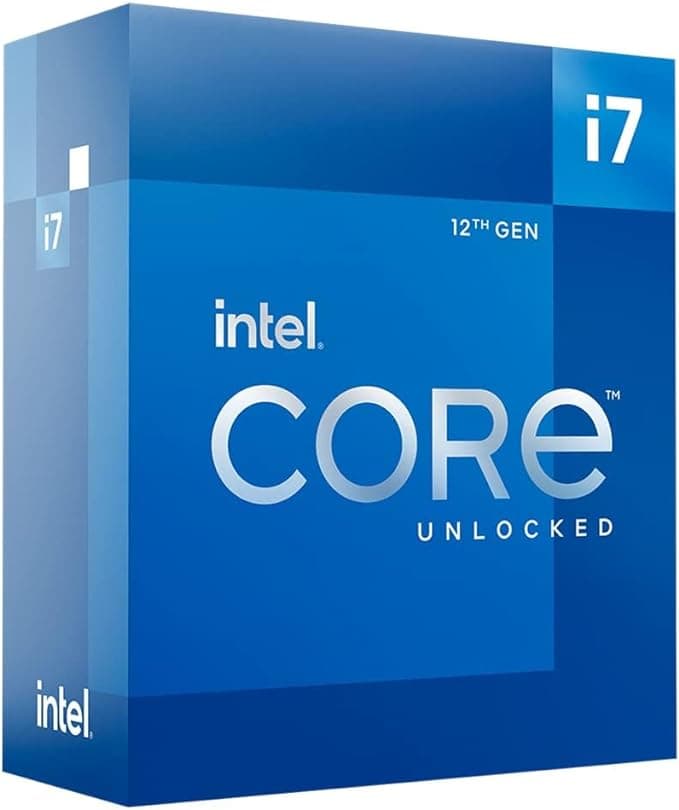Core-i7 13700K vs Core i7 12700K: Which is the best value?

Table of Contents
The comparison between the Core-i7 13700k vs. Core i7 12700K presents a fascinating study in generational advancements. This article dives deep into the heart of Intel's CPU lineup, pitting two of its most prominent processors against each other. Both the Core-i7 13700k and the 12700K are renowned for their performance and reliability, but how do they really stack up when placed side by side?
As we explore the nuances of the Core-i7 13700k and Core i7 12700K, we aim to uncover the subtle yet critical differences that set them apart. This comparison is more than just a number game; it’s about understanding how each processor can enhance your computing experience, whether you’re a gamer, a creative professional, or someone seeking the best value for your next PC build.
Core-i7 13700K vs. Core i7 12700K: Specs
When selecting a processor, the specifications play a crucial role in determining its performance capabilities and compatibility with other hardware components. The Core-i7 13700K and the Core i7 12700K, two powerful processors from Intel, differ in their specifications, influencing their suitability for various tasks and user requirements.
Core and thread count
The Core i7-13700K boasts a significant advantage in terms of core and thread count. It features 16 cores (8 performance cores and 8 efficiency cores) and 24 threads, compared to the 12 cores (8 performance cores and 4 efficiency cores) and 20 threads of the Core i7-12700K. This higher core and thread count translates into enhanced multitasking capabilities, enabling the 13700K to handle multiple demanding tasks simultaneously with greater efficiency.
Clock speed and performance
Clock speed is another critical factor influencing processor performance. The Core i7-13700K holds an edge in this regard, with a base clock of 3.4 GHz and a peak boost clock of 5.4 GHz. In contrast, the Core i7-12700K features a slightly higher base clock of 3.6 GHz but has a lower peak boost clock of 5.0 GHz.
The higher boost clock of the 13700K indicates its ability to handle more demanding processes, such as gaming and complex video editing, with greater efficiency.
L3 cache
The Core i7-13700K also benefits from a larger L3 cache of 30 MB, compared to the 25 MB in the Core i7-12700K. The L3 cache acts as a temporary storage area for frequently accessed data, reducing the need to constantly retrieve data from slower storage. The larger L3 cache in the 13700K contributes to smoother performance, especially for applications that rely heavily on data retrieval.
Power consumption and thermal design
Both processors share the same Thermal Design Power (TDP) of 125W, indicating similar power consumption and heat output. This means that they require equivalent cooling systems and have similar power draw characteristics.
Additionally, both processors are priced identically at $409 MSRP. This equal pricing makes the choice between the two more dependent on the specific performance needs and preferences of the user.
| Specification | Core-i7 13700K | Core-i7 12700K |
|---|---|---|
| Processor Architecture | Raptor Lake | Alder Lake |
| Performance Cores | 8 (P-cores) | 8 (P-cores) |
| Efficiency Cores | 8 (E-cores) | 4 (E-cores) |
| Total Threads | 24 | 20 |
| Base Clock Speed | 3.4 GHz | 3.6 GHz |
| Boost Clock Speed | Up to 5.4 GHz | Up to 5.0 GHz |
| L3 Cache Memory | 30 MB (shared) | 25 MB (shared) |
| DDR Memory Support | DDR4 and DDR5 | DDR4 and DDR5 |
| Maximum Supported RAM Speed | 5,600 MT/s | 4,800 MT/s |
| Maximum Memory Bandwidth | 89.6 GB/s | 76.8 GB/s |
| Thermal Design Power (TDP) | 125 W | 125 W |
| Processor Socket | LGA 1700 | LGA 1700 |
| Price | $409 | $409 |
Compatibility with motherboards and components
When considering an upgrade, it’s essential to factor in motherboard compatibility. Both CPUs require motherboards with specific chipsets and are compatible with Z690, Z790, B760, and B670 motherboards.
GPU and other hardware considerations
For gamers and professionals using graphics-intensive applications, the synergy between the CPU and GPU is crucial. Both the 13700K and 12700K pair well with high-end GPUs, ensuring smooth gaming and application performance.
Architecture and future-proofing
The architecture of these CPUs plays a significant role in their performance and future-proofing potential. Users should consider how these CPUs fit into their long-term hardware strategy, especially when it comes to upgrades and compatibility with emerging technologies.
In conclusion, while both CPUs offer impressive features, the Core i7-13700K’s enhanced capabilities make it a more future-proof choice, especially for users prioritizing multitasking and high-performance tasks. However, the decision ultimately hinges on individual needs and the compatibility of existing PC components.
Core-i7 13700K vs. Core i7 12700K: Performance
When it comes to performance, the Core-i7 13700K stands as the clear winner over its predecessor, the Core-i7 12700K, thanks to its superior specifications, including higher clock speeds, a larger L3 cache, and more cores and threads. This performance advantage is evident in both gaming and productivity applications.
Gaming performance: Unleashing frames per second (FPS)
In gaming scenarios, particularly at 1080p, 1440p, and 4K resolutions, the Core-i7 13700K has demonstrated a notable improvement in frames per second (fps) over the 12700K. This performance boost, generally averaging around 15%, is influenced by factors like resolution and the specific game.
Productivity prowess: Dominating CPU-intensive tasks
The Core-i7 13700K’s higher clock speeds and base frequency give it a distinct edge in productivity and professional applications. Its superior specifications are particularly beneficial in CPU-intensive tasks, leading to significant performance gains.
- Blender: The 13700K is about 32% faster, showcasing its efficiency in 3D rendering.
- Cinebench R23: It outperforms the 12700K by 7% in single-core and 31% in multi-core tests, indicating better overall processing power.
- Compression and Decompression: The 13700K leads by 29% in compression tasks and 37% in decompression, essential for handling large files.
- Multimedia Encoding: It shows a 26% improvement, enhancing productivity in multimedia projects.
Photoshop and Premiere Pro: A mixed bag
When it comes to Adobe Premiere Pro and Photoshop, the performance gap between the Core-i7 13700K and the 12700K is less consistent, making it challenging to pinpoint an average performance increase. Benchmark results vary depending on the specific task and project, with some tests indicating a 7% faster performance in Premiere Pro and others showing a difference of 38%. Similarly, Photoshop results demonstrate similar inconsistency.
Core-i7 13700K vs. Core-i7 12700K: Showdown
| Benchmark | Core-i7 13700K | Core-i7 12700K |
|---|---|---|
| CPU Mark | 46,704 | 34,721 |
| CPU Mark (single thread) | 4,379 | 4,050 |
As you can see, the Core-i7 13700K consistently outperforms the Core-i7 12700K across a range of benchmarks. This is due to its higher clock speeds, larger L3 cache, and increased core count.
Overall, the Core-i7 13700K emerges as the clear winner in terms of performance, offering a significant boost over its predecessor, the Core-i7 12700K. Its higher clock speeds, larger L3 cache, and increased core count translate into better performance across various workloads, making it an excellent choice for demanding gaming and productivity tasks.
Core-i7 13700K vs. Core i7 12700K: Price
When evaluating the Core i7-13700K and Core i7-12700K, pricing plays a crucial role. Both CPUs are priced at an MSRP of $409, making the decision more about performance per dollar than cost alone.
Identical pricing, diverse performance
Despite sharing the same price tag, these processors differ significantly in performance. The Core i7-13700K, as the successor to the 12700K, offers enhanced features and better performance, especially in multitasking and high-demand applications. This makes it a potentially more valuable choice for users seeking advanced capabilities.
Q4 release and technological advancements
Released in Q4, the Core i7-13700K benefits from technological advancements over its predecessor, the 12700K. These improvements are crucial for users who prioritize having the latest and most efficient technology.
Price comparison table
| Feature | Core-i7 13700K | Core-i7 12700K |
|---|---|---|
| Price (MSRP) | $409 | $409 |
| Performance tier on release | Enthusiast | Enthusiast |
| Ideal for | Balanced Performance | Balanced Performance |
This table succinctly compares the pricing and performance aspects of both CPUs, highlighting the Core i7-13700K’s edge in terms of newer technology and improved capabilities, despite the identical pricing.
Core-i7 13700K vs. Core i7 12700K: Conclusion
Concluding this comparison, the Core i7-13700K emerges as the superior CPU overall, offering enhanced features such as higher core and thread counts, a greater boost clock, and a larger cache size. These advanced specifications translate to better multitasking capabilities, efficient handling of demanding applications, and generally improved performance across various computing tasks.
The Core i7-12700K, while a formidable processor in its own right, falls slightly behind the 13700K in terms of raw performance. However, its identical price point to the 13700K makes it a less favorable option for those seeking the best performance available for the investment.

